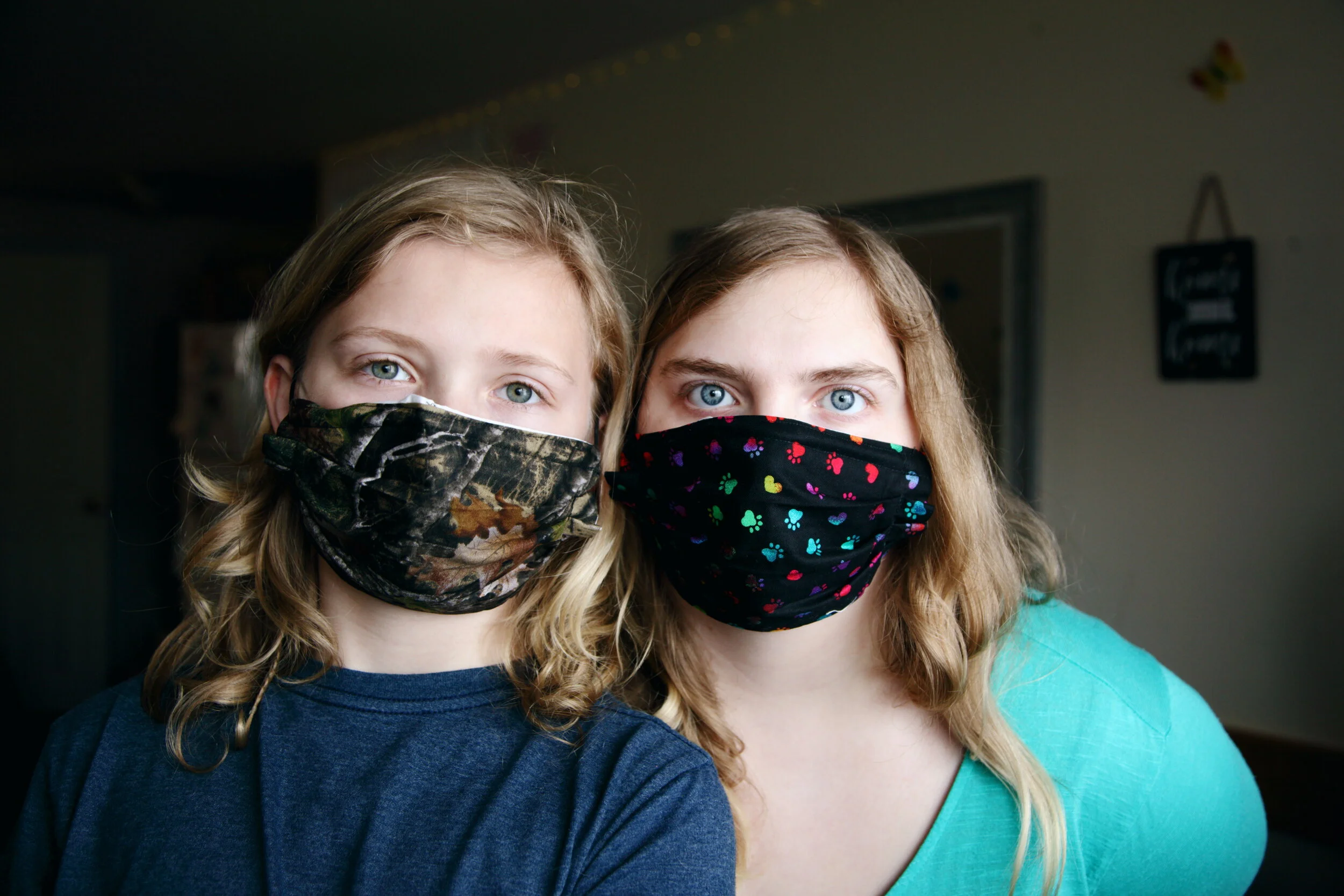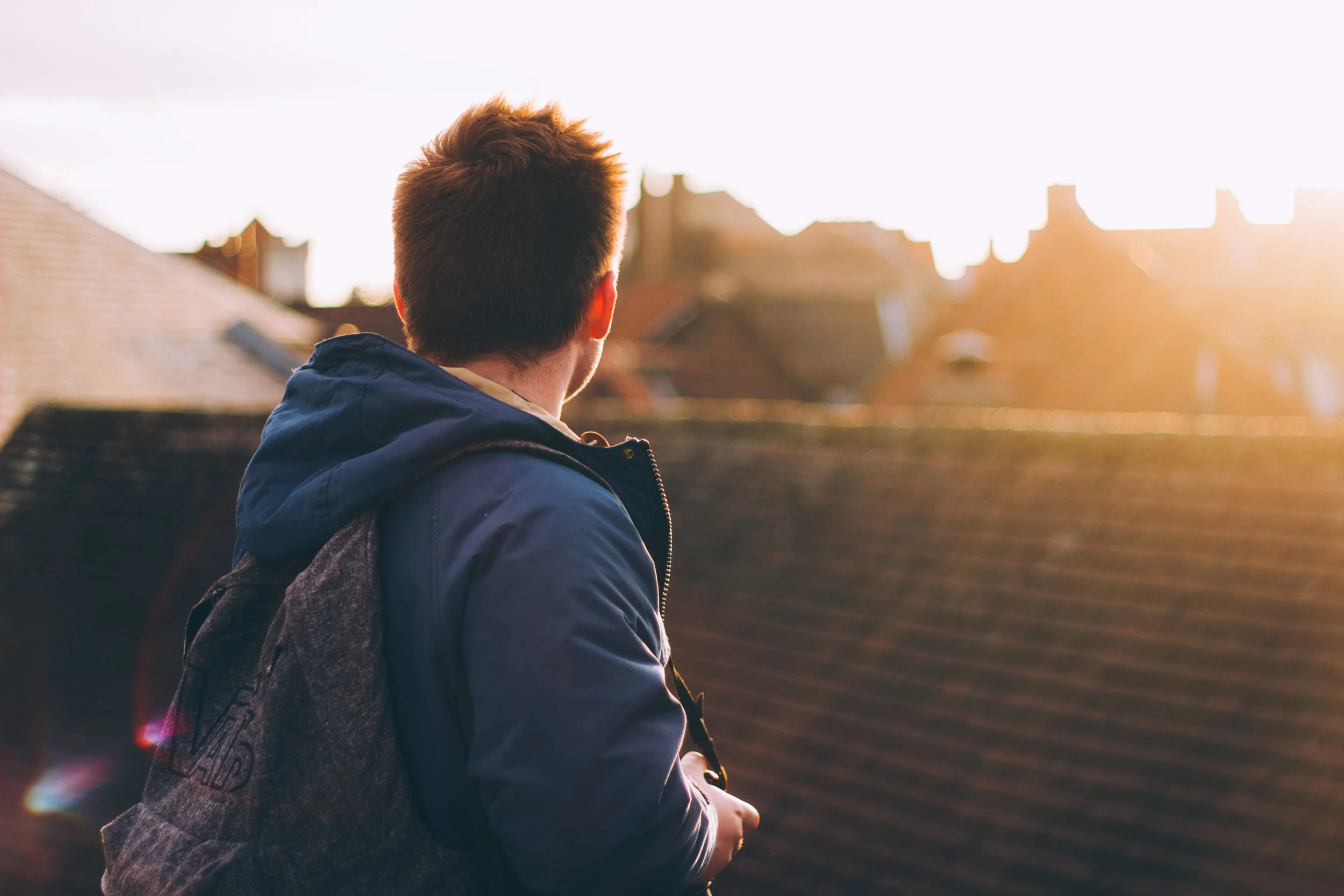Even kids who are usually eager to attend class may be feeling nervous this back-to-school season. The pandemic threw a wrench in many children’s daily routines, leaving them with tons of unstructured time and few opportunities to hang out with other kids. Combine that with the uncertainty in many school districts about what the new school year will look like, and you’ve got a recipe for school anxiety. Today, I’m sharing some advice about back-to-school anxiety, and how to help your child feel confident and prepared for an unusual school year.
My Child Loves School. Why Is This Year So Much Harder?
We are going to be seeing the after-effects of the coronavirus pandemic on children for a while. As daycares, schools, and extracurricular activities reopen for business, many kids find themselves feeling more anxious, rather than less. Back-to-school jitters are common for all kids, but there are a few good reasons why this year’s return to school may be especially challenging:
Kids have been out of school much longer than a normal summer vacation, which makes returning harder
It’s tough to transition back into the strict routines of school after lots of unstructured time at home
Not having chances to socialize with other kids can increase social anxiety
Some children are very worried about the coronavirus, and how they’ll stay safe at school
New safety measures, like masks and social distancing, might trigger anxiety for kids
Uncertainty about the school’s reopening plans can make anxiety worse
What Are The Signs and Symptoms of School Anxiety?
Chances are, if your child is nervous or reluctant to go back to school, you are hearing a lot about it already! However, sometimes it’s hard to distinguish between run-of-the-mill worries about the first day of school and stronger anxiety that might need some extra help to overcome. In addition, some kids are not as vocal about their anxiety, and their symptoms may be more body-based. Here are a few clues to look out for if you think your child might be struggling with school anxiety:
Headaches, upset stomach, or complaints of other physical problems on school mornings
Frequent trips to the school nurse during the school day, without a clear illness
Repeated worries about bad things that could happen while at school, such as getting sick
Tantrums, anger, or outright refusal to go to school
Panic attacks, which may seem to come out of the blue
Anxiety that seems to be more intense or long-lasting than what is usual for the child’s age
One or more of these symptoms might indicate that your child’s worries about school are stronger than they need to be, and they could use some help to move past them.
How Can I Help My Child Get Ready to Go Back to School After Coronavirus?
Right now is a great time to help your child combat anxiety and prepare to go back to school. There is no getting around it—this school year is likely to be a weird one, and it’s understandable that kids are feeling nervous! Even so, there are steps that parents can take to help kids soothe their worries and feel more ready to deal with the changes this year might bring.
If your child has been spending tons of time isolated at home, now is a great time to (safely) help them get used to being back in public. You don’t want your child’s first venture back out into the “real world” to be on the first day of school! If you are safely able to do so where you live, let your child accompany you on grocery store runs or other errands. Try some outdoor activities that allow for social distancing while still letting your child be around other people.
This can help your child re-build their tolerance for transitions between activities and get used to socializing again. It’s also a great opportunity to practice wearing masks and using good hygiene, which might be needed for in-person school.
School Hasn’t Started Yet. What Can I Do Now to Reduce My Child’s Coronavirus Anxiety?
The summer weeks leading up to the start of school are also a great time to prepare your child for what changes to expect when school reopens. Are they likely to be online, in-person, or a mix of the two? Will children be expected to wear masks? Will their desks be spaced further apart, or will children be attending school in smaller groups? Younger children can benefit from acting out these changes through play, while older kids can handle a simple conversation.
Even if you’ve done it before, this is also a great time to review facts about coronavirus with your child and check for any misinformation that is causing anxiety. Make sure your child knows how coronavirus is and isn’t spread, and emphasize what measures their school will be taking to keep students and teachers safe. Many children I work with are very fearful about catching coronavirus through food, or simply by being outside of the house. Accurate knowledge about how the germs spread can reduce anxiety.
School Has Started For My Child, And The Anxiety Hasn’t Gone Away. How Can I Help?
For some kids, anxiety about school might subside once they’re settled into their new routine. For others, anxiety symptoms may stick around and continue to cause problems. This year, parents may be put in the difficult position of having to make decisions about whether or not to allow their child to return to in-person classes. Parents might also find themselves worried about or not in agreement with school policies, but needing to send their child to school, anyway.
Whatever choice you make, it’s a good idea to avoid speaking negatively about the school’s decisions in front of your child. Kids will take your opinions to heart, and they’re looking to you to help form their own beliefs about school. You can help to set a tone in your household that is both optimistic and realistic. If you need to vent about the impossible situation you’re being put in as a parent, find a friend to talk to away from your child’s listening ears.
My Child Won’t Be With Friends This Year. How Can I Make It Easier?
Some children may struggle from being separated from their friends at school this year. Whether it’s due to social distancing in the classroom, attending school on alternate days, or friends changing schools or switching to homeschooling, this can have a big impact on a child’s attitude about school. Help your child find ways to keep in touch with friends, whether through group zoom chats, after-school activities, or an old fashioned phone call. Games or structured activities might make staying connected with friends feel easier and less awkward.
The usual, non-pandemic advice for how to help kids with school anxiety still applies, too. Practicing relaxation skills at home, encouraging consistent attendance, and reading books to children about school stress can help ease the transition back to the classroom. You can check out my earlier post on back-to-school anxiety for more detailed advice.
More Help for Returning to School After Covid
Unicef has a great mental health guide for helping kids re-adjust to school this year. I also really like healthychildren.org’s practical advice about how students can stay safe at school, as well as how to address bullying and other issues that might be more intense as this school year begins.
My favorite tools for helping children practice relaxation skills are Headspace and Insight Timer for guided visualizations, and the app What’s Up? to help kids struggling with panic attacks feel more grounded.
If you’re looking for counseling for your child with school anxiety, my virtual door is open, and I’d love to hear from you. I can see clients in New York, North Carolina, and Florida for online therapy.




